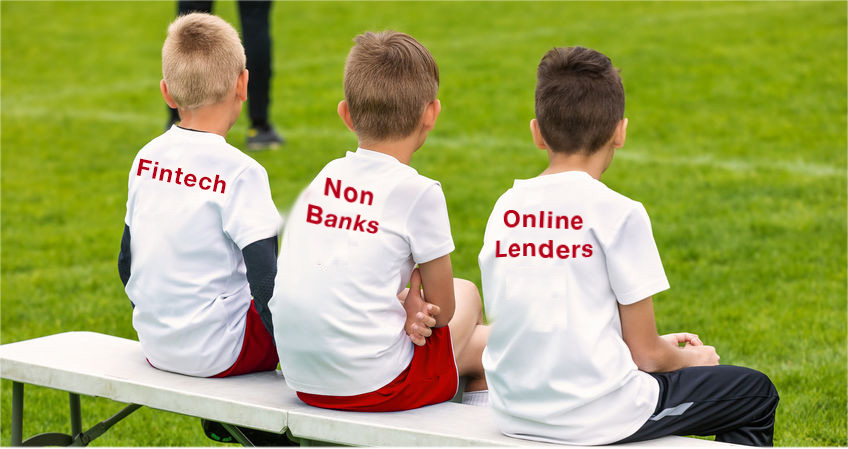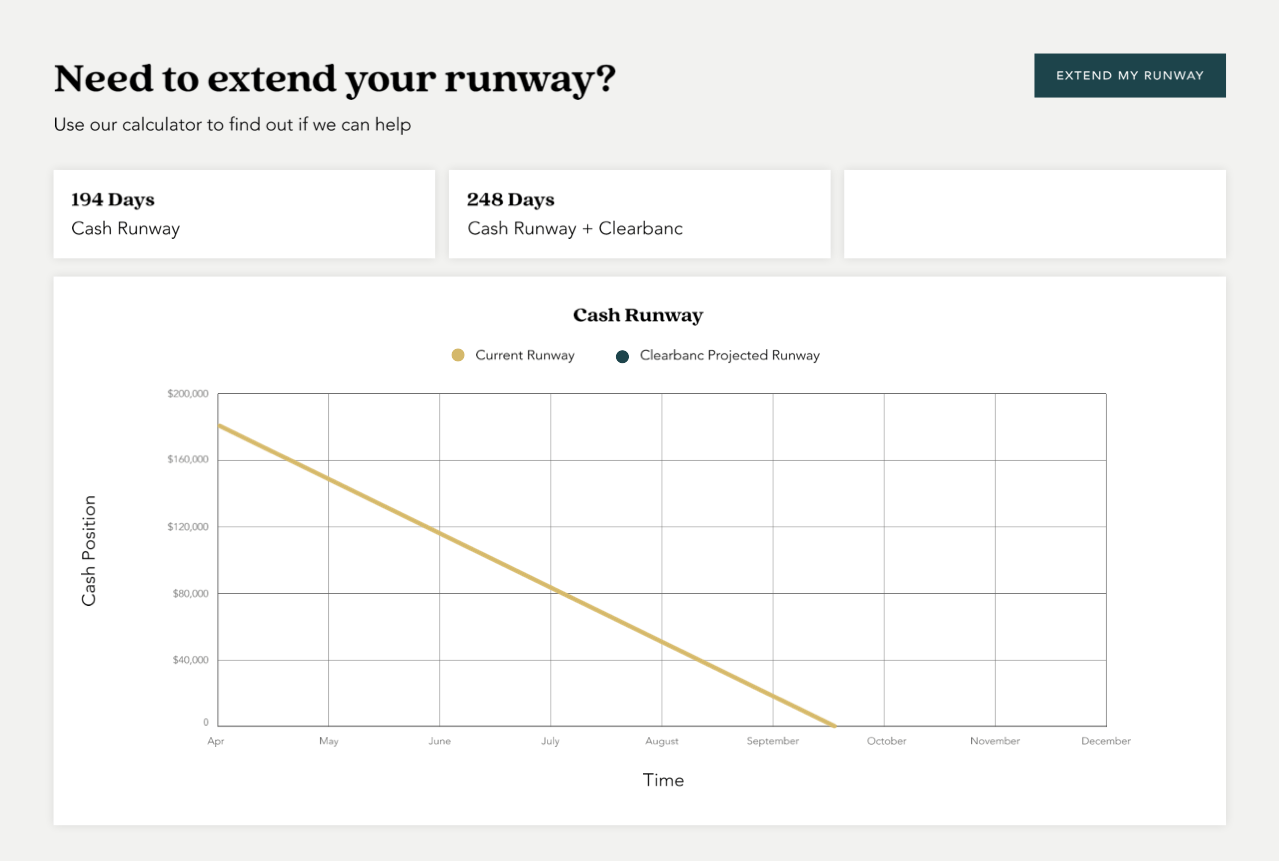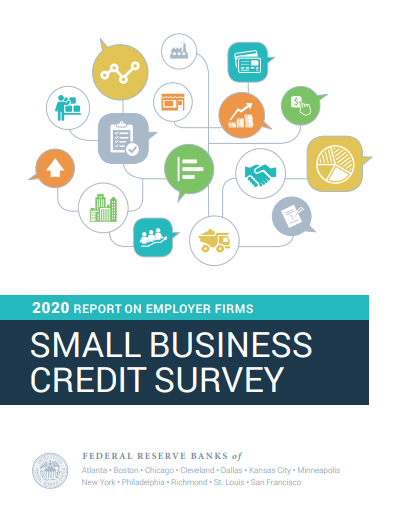Archive for 2020
Online Lenders Are Waiting On The Bench For The PPP To Be Refreshed
April 16, 2020 This week proved mixed for many fintech and non-bank lenders who received approval from the SBA to issue Paycheck Protection Program funds, only for the $349 billion allotted to the program to run dry almost immediately afterwards.
This week proved mixed for many fintech and non-bank lenders who received approval from the SBA to issue Paycheck Protection Program funds, only for the $349 billion allotted to the program to run dry almost immediately afterwards.
On Wednesday evening Senator Marco Rubio tweeted that the funds would run short, leaving at least 700,000 small businesses who applied in purgatory without PPP financing. But more money may be made available, as Treasury Secretary Steven Mnuchin said in a statement on Wednesday that “We urge Congress to appropriate additional funds for the Paycheck Protection Program – a critical and overwhelmingly bipartisan program – at which point we will once again be able to process loan applications, issue loan numbers, and protect millions more paychecks.”
BlueVine, OnDeck, Funding Circle, PayPal, Intuit, and Square were among the group of non-bank lenders who were recently approved. While unfortunately late to the party, these businesses will be well-positioned to quickly roll out funding once further PPP money is allocated.
“Millions of small businesses need relief more than ever right now, and providing that relief quickly and diligently is our top priority,” BlueVine CEO Eyal Lifshitz told deBanked. “While most PPP lenders have limited their efforts to existing customers, our aim is to support and protect all small businesses. Using our data and engineering resources, we want to ensure both existing customers and other small businesses seeking relief, are aware of and have access to PPP loans. We will remain a trusted advisor to small businesses and work to get fast capital solutions to those in need.”
Lifshitz’s comment echoes concerns that have plagued the SBA since the announcement of these funds: that its systems, and the processes of the banks it works with to issue this money, are outdated and insufficient to face a financial crisis of this magnitude and speed. Now weeks into the program, businesses are reporting a lack of communication from both their bank and the SBA; and, most importantly for many, no PPP funds in their accounts.
Clearbanc Launches Runway in Response to Covid-19
April 16, 2020 This month Clearbanc announced its latest product, Runway, in response to the impact of the novel coronavirus. Having historically served the needs of those businesses that are seeking funds for digital marketing, with Runway Clearbanc is expanding into capital for more generalized purposes in the face of covid-19.
This month Clearbanc announced its latest product, Runway, in response to the impact of the novel coronavirus. Having historically served the needs of those businesses that are seeking funds for digital marketing, with Runway Clearbanc is expanding into capital for more generalized purposes in the face of covid-19.
“All companies are concerned about one thing and that thing is runway: ‘how many months do I have left and how do we extend that?’ Clearbanc CEO Michele Romanow explained. “So we built this really cool product, where you can give us a little bit of information and we can show you how much runway you have today at your current economics, and then how much we could extend that runway.”
Open to e-commerce, D2C, and enterprise SaaS businesses, Runway has already begun issuing funds. Amounts begin at $10,000 and can run up to $10 million, with monthly cash injections being an option if Clearbanc deems it suitable. Fees range from 6-12% and funding is equity-free.
“These is no playbook for the current economic crisis and recovery, and every founder needs more insight and options to navigate this incredibly difficult time. In addition, venture capital is even harder to come by. Capital is the most important tool to sustain and grow a business, and is now needed more than ever.”

That’s All Folks? – The PPP Money Is Already Gone
April 15, 2020
Update 4/16/20: The SBA has put up an official statement on its website that says “The SBA is currently unable to accept new applications for the Paycheck Protection Program based on available appropriations funding. Similarly, we are unable to enroll new PPP lenders at this time.”
A number of fintech companies have just joined the Paycheck Protection Program, but they’re a tad late to the PPParty. On Twitter, Senator Marco Rubio, one of the co-sponsors of the CARES ACT that developed this program, confirmed the rumors that the well had run dry. “Sadly it appears #PPP will grind to a halt tonight as the limit on $ allocated to guarantee #PPPloans about to be hit.”
Sadly it appears #PPP will grind to a halt tonight as the limit on $ allocated to guarantee #PPPloans about to be hit.
Now 700000 small business applications are in limbo & no new loans will be made until the game of chicken in Congress ends & additional $ approved.
Inexcusable
— Marco Rubio (@marcorubio) April 15, 2020
Here’s the math
Congress approved $349 billion to guarantee #PPP
At 2pm today had over $300 billion in approved #PPPloans
Need $10 billion to cover fees & processing
When we reach $339 billion limit PPP will stop until they end with the ridiculous games & approve more funds
— Marco Rubio (@marcorubio) April 15, 2020
The SBA has often made reference to total funds “approved” when calculating its numbers rather than loaned out, so if you’re a business that has already been approved, then presumably funds have already been allocated for your business and you will still receive them. But if your application is pending, well it’s possible that funding may require additional congressional authorization. That however, as noted by Rubio’s remarks, will require some political compromise.
Update: 4/16 8 AM: Senator Rubio said on Fox Business that the PPP program was now frozen after having reached its limit and has stopped.
We’ll update this as more information becomes available.
Small Business Credit Survey Proves Itself to Be a Blast From the Past
April 15, 2020 Over a month into a nationwide lockdown and it can prove hard to remember what things were like before this. The ease of going to a restaurant and sitting in, the buzz of attending a packed concert, or even the unappreciated experience of not having to maintain six feet between yourself and whoever is beside you.
Over a month into a nationwide lockdown and it can prove hard to remember what things were like before this. The ease of going to a restaurant and sitting in, the buzz of attending a packed concert, or even the unappreciated experience of not having to maintain six feet between yourself and whoever is beside you.
As well as these small joys, for many small business owners the prospect of growth is a memory, as the latest Federal Reserve Small Business Credit Survey highlights. Released in March, the report is a summary of how small business owners acted and felt towards credit in 2019, as well as how they viewed their future in 2020.
While that’s certainly a grim reminder, the report featured an interesting question which appears prescient in the wake of the impacts of covid-19. “What actions would your business take in response to a 2-month revenue loss” was put to the 5,514 respondents, which were composed of owners of businesses that employed between 1 and 499 employees (coincidentally the same range for PPP loan eligibility). And the answers highlight the extent of the trouble which many small business owners currently find themselves in.
33% said they would lay off employees, 34% reported that they would rely on debt, and just 37% stated that they would reduce salaries of the owner(s) or employees. As well as these hypothetical decisions, 17% of respondents said they would shut down and 47% noted that they would use the owner’s personal funds to ride out the storm, worrying numbers given the current situation.
And while these responses prove eerie in light of what was to come, other answers reflect the optimism that 2019 yielded. 69% of firms expected revenue to increase in 2020, 44% expected their number of employees to grow, and 56% reported revenue growth on from 2018.
Outdated as the report is, it acts as an artifact of sorts: reminding the industry of what can come before the fall, and how even when things are good, many businesses are a few steps removed from serious trouble.
Facebook Announces $100M Small Business Grant Program
April 13, 2020 Earlier this month Facebook announced that it will begin rolling out its small business grant program across the world to provide relief for companies affected by the coronavirus. Totaling $100 million in value, the program will provide funding to small businesses in over 30 countries via grants that are mostly cash, but will also include Facebook ad credits. The news comes one month after the tech giant launched its Business Hub.
Earlier this month Facebook announced that it will begin rolling out its small business grant program across the world to provide relief for companies affected by the coronavirus. Totaling $100 million in value, the program will provide funding to small businesses in over 30 countries via grants that are mostly cash, but will also include Facebook ad credits. The news comes one month after the tech giant launched its Business Hub.
$40 million of this will be allocated to 10,000 American small businesses. Beginning in Seattle and New York, the plan is to eventually launch the program in an additional 32 US cities.
Eligible businesses need not be active on Facebook, Instagram, or WhatsApp; however they must employ between 2 and 50 workers, have been in business for over a year, have experienced challenges due to covid-19’s impact, and be in or near a location where Facebook operates.
As well as the grant initiative, Facebook has launched a number of web resources to provide information about applying for SBA loans, how to better connect with customers at this time, and how to bring businesses more online. As well as this, it has expanded its digital services, upgrading its fundraising portal, offering digital gift cards, and enabling business pages to offer delivery and pickup.
“These are rolling out today in the US and our teams are working hard on bringing these tools to more countries, as we know they can be a lifeline for businesses to quickly get the capital they need until it is safe to open their doors again,” said Facebook COO Sheryl Sandberg in a statement. “Small businesses are the heartbeat of their communities. We are determined to help and we know the road ahead will require a lot more from all of us.”
Business can begin the application process by heading to Facebook’s site and checking whether their location will be included in the program.
IOU Financial Has Applied to Become a PPP Lender
April 10, 2020IOU Financial applied to become a PPP lender on Thursday, according to a note posted to social media by President and COO Robert Gloer.
“We are all hoping the SBA will be able to quickly get FinTech lenders up and running. We have helped thousands of Small Businesses Nationwide since 2009. We are built to deploy capital efficiently and expeditiously,” he added.
Should I Apply to Become a PPP Lender?
April 10, 2020 One question being posed in the small business finance community is whether or not you should apply to become a PPP lender. Unless you are a very large well-capitalized company with a deep legal and compliance bench, you probably shouldn’t.
One question being posed in the small business finance community is whether or not you should apply to become a PPP lender. Unless you are a very large well-capitalized company with a deep legal and compliance bench, you probably shouldn’t.
Here’s why:
- You must supply the capital. While a federal mechanism is being put in place to offload the PPP loans you fund, you need the balance sheet to fund the loans in the first place. Also, consider that community banks have historically expressed frustration with the guaranty process and that’s when times and loan volumes were operating at normal levels. You must be prepared for hiccups to take place that delay or even possibly prevent offloading of some or all of these loans.
- You only earn a 5% processing fee on loans under $350,000. For larger loans, it’s a smaller percentage. You can’t even charge the applicant any fees at all so your compensation is entirely dependent on the SBA to pay you. Consider that your underwriting costs may offset some or all of that fee, leaving very little room for profit.
- You must have 2019 audited financial statements available for inspection by the SBA.
And you must have either of the following:
1.
- You must already have been applying Bank Secrecy Act-level compliance prior to this crisis.
- You must have been originating at least $50 million in business loans or other commercial financial receivables per year for each of the last 3 years consistently.
OR
2.
- You must already be a service provider to a bank.
- You must already have a contract to support the bank’s lending activities.
It’s a tough bar to meet for a small and mid-sized small business financing provider, but the program isn’t really set up to become a major profit center for lending companies, it’s supposed to be a support center for SMBs to keep workers employed. Initially, many banks were hesitant to get involved because PPP participation was going to generate LOSSES for them. It still might.
So what’s the incentive to be a non-bank PPP lender? It’s a moral pursuit on the front-end rather than a financially-driven one. On the back-end, it’s a tool for lead generation, public relations, and elevating goodwill value. If such lenders are able to execute successfully, it could further develop trust for fintech with legislators, regulators, and the general public. On the other hand, however, if they perform poorly, it could reflect negatively on fintech as a whole.
So if you find yourself on the PPP lending bench, you’re not missing out financially. You can still become an agent/broker should an approved SBA lender accept you. Such a role presents limited upside financial potential, so if it’s riches you seek, the PPP doesn’t provide them.
Lastly, becoming a PPP lender certainly won’t save a dying lending company. Making loans at 1% interest to distressed and closed businesses isn’t going to somehow save a company with an already damaged loan portfolio. It’s just going to put it out of business faster.
Should you apply to become a PPP lender? That’s up to you. Good luck!
OnDeck Has Applied to Become a PPP Lender
April 10, 2020OnDeck has applied to become a lender for the Paycheck Protection Program (PPP), according to a post the company made on social media. The online lender is one of the first to publicly announce an official entry for consideration since the application went live for fintech companies Wednesday evening.
OnDeck CEO Noah Breslow said on LinkedIn, “We are excited to be one of the fintechs delivering PPP loans as a direct lender – our team has been working around the clock getting us ready and now we wait and hope we are approved soon!”





























